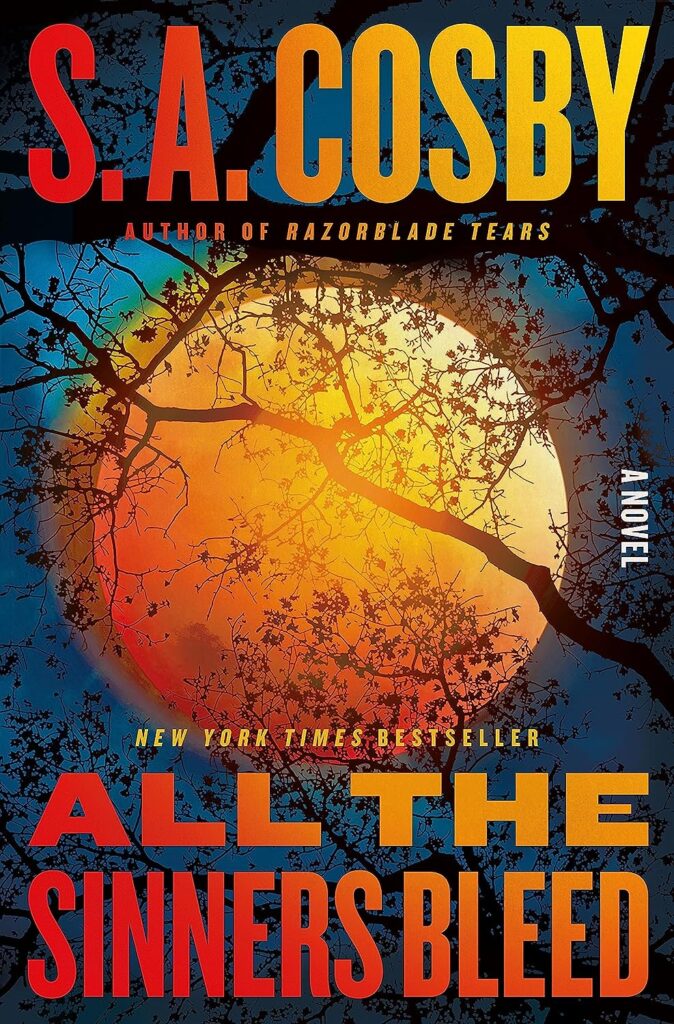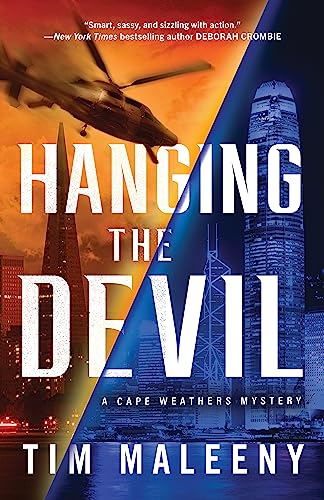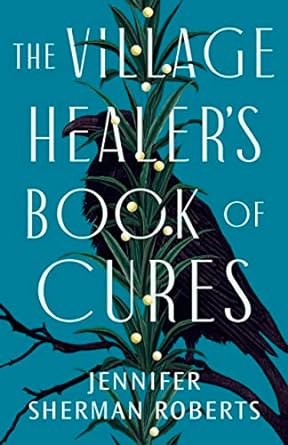All the Sinners Bleed by S. A. Cosby
Just discovered S.A. Cosby. All the Sinners Bleed is a fast-paced story of an African America ex-FBI agent turned sheriff. Titus Crown has moved to his hometown in rural eastern Virginia. A school shooting starts a chain of events that reveals the ugly secrets of his town. Great story and pointed commentary on race, religion, and small-town politics. Cosby’s Blacktop Wasteland and Razorblade Tears are on my list.
Seldom Disappointed by Tony Hillerman
A wide-ranging memoir that takes us from Oklahoma to World War II to newspaperdom, university life and the best-seller list. There are some poignant observations on war, ironic tales about being a reporter, and later a university administrator and professor at the University of New Mexico, and helpful advice about being a writer. The title is an accurate description.
The Peoples Tongue ed. By Ilan Stavans
I reviewed this collection for Choice, so check it out there.
 Small Mercies by Dennis Lehane
Small Mercies by Dennis Lehane
I’ve been a Dennis Lehane fan since A Drink Before the War (and still miss the duo of Patrick Kenzie and Angela Gennaro). Small Mercies has echoes of that first book in fact, with race, class, and gang violence figuring in the story. The action takes place in 1974 at the height of tensions over court-mandated busing in South Boston. The unlikely protagonist is Mary Pat Fennessy, a life-long Southie resident who’s lost two husbands (one dead, one divorced) and a son (to drugs). Now her daughter, Jules goes missing and Mary Pat goes ballistic, taking on the gang that runs Southie. She needs to find out how Jules was mixed up in the killing of a young Black man whose car broke down and why she has disappeared.
Lehane captures the emotions and language of generational poverty and racism in his portrait of 1970s Dorchester and creates in Mary Pat Fennessy an unlikely avenger. The story and the morality play fit seamlessly.
Teach From Your Best Self by Jay Schroder
Teaching is one of the careers with the highest burnout rate—more so now that ever. Jay Schroder, a twenty-four-year veteran teacher—recipient of the Oregon Council of Teachers of English High School English Teacher of Excellence Award, shares his experience and his understanding of burnout and resisilency.
. Grounded in research about the profession and personal experience, he offers ways to thrive as a teacher so that your students thrive—ways to reflect on your own “hurtspots” and overcome them. Most teachers are not ninjas, but they can learn a lot from the way of ninja to achieve maximum impact with minimal effort. to be extremely to be able to improvise as circumstances changed. It’s a great, helpful read for the teachers in your life.
Elena Knows by Claudia Piñeiro
By the Argentine crime fiction writer Claudia Piñeiro, it’s the story of Elena, a woman with Parkinson’s disease who is trying to uncover her daughter’s murder. The police have ruled it a suicide; the Catholic church has labelled it a sin; and the “whore of an illness” makes her investigation painfully arduous. The structure and style of the book are ties to Elena’s illness and, like the best noir, it offers social commentary as well as a mystery.
Fishing for Fallen Light by John Forsythe
John Forsyth’s Fishing for Fallen Light is the sort of project that every educated person should take on in their later years. Forsyth is a retired physician with a long-standing interest in philosophy and here he offers an intellectual memoir of sorts, tracing his readings, conversations, and thoughts and concerns about truth (and Truth and TRUTH). It was prompted by the events of January 6, 2021, and by the continual lies of Donald Trump (who takes over the book for a time).
Forsyth begins in a unique and clever way, with a fifty-some item annotated bibliography of what he has read on the topic, given the readers some scholarly context. Then he turns to a more or less chronology of philosophers and others thinking about truth and reason, from the Greeks to people like Sissela Bok, Daniel Kahneman, and Johnathan Haidt. Finally he applies his thinking to gain an understanding of why people resist or are impervious to the truth. It was an engaging and personal study by someone who has thought deeply about Truth and cares about it, and it will make readers think about their own conceptions of truth.
 Hanging the Devil by Tim Maleeny
Hanging the Devil by Tim Maleeny
I’ve been a fan of Tim Maleeny for several years now, since reading his Jump and Stealing the Dragon. For my money, he’s probably the funniest mystery writer I can think of. In this book San Fransisco-based Cape Weathers and his much tougher ninja-partner Sally Mei try to protect an orphaned Chinese girl and help a roguish Interpol agent foil an attempt to steal back Chinese art treasures. There’s another ninja to challenge Sally, genetically-engineered macaques, state-sponsored art forgery, and gangsters aplenty. If you like your crime fiction served with a smile, this one’s for you.
 The Village Healer’s Book of Cures by Jennifer Sherman Roberts
The Village Healer’s Book of Cures by Jennifer Sherman Roberts
Jennifer Sherman Roberts’s debut novel, The Village Healers Book of Cures, is set in seventeenth-century England, is her debut novel, and based on an actual witch hunter in England, a smarmy character named Matthew Hopkins. (The real-life Hopkins was responsible for the death of 300 women.)
Mary Fawcett is a village healer, a woman who cures ills with recipes handed down to her and her own empathy and acumen. When a husband on one of her patients is murdered, Mary comes under suspicion by Hopkins. Together with her young brother and her new friend, the mysteriously scarred alchemist Robert Sudbury, Mary must uncover the mystery of the witches’ symbols on the body. The Village Healer’s Book of Cures is a tense, well-paced and brings in some interesting history and some clever plot twists. Bonus: Jennifer Sherman Roberts is an expert on medieval recipes and she weaves in healing recipes with each chapter (but don’t try the at home).

 Follow
Follow